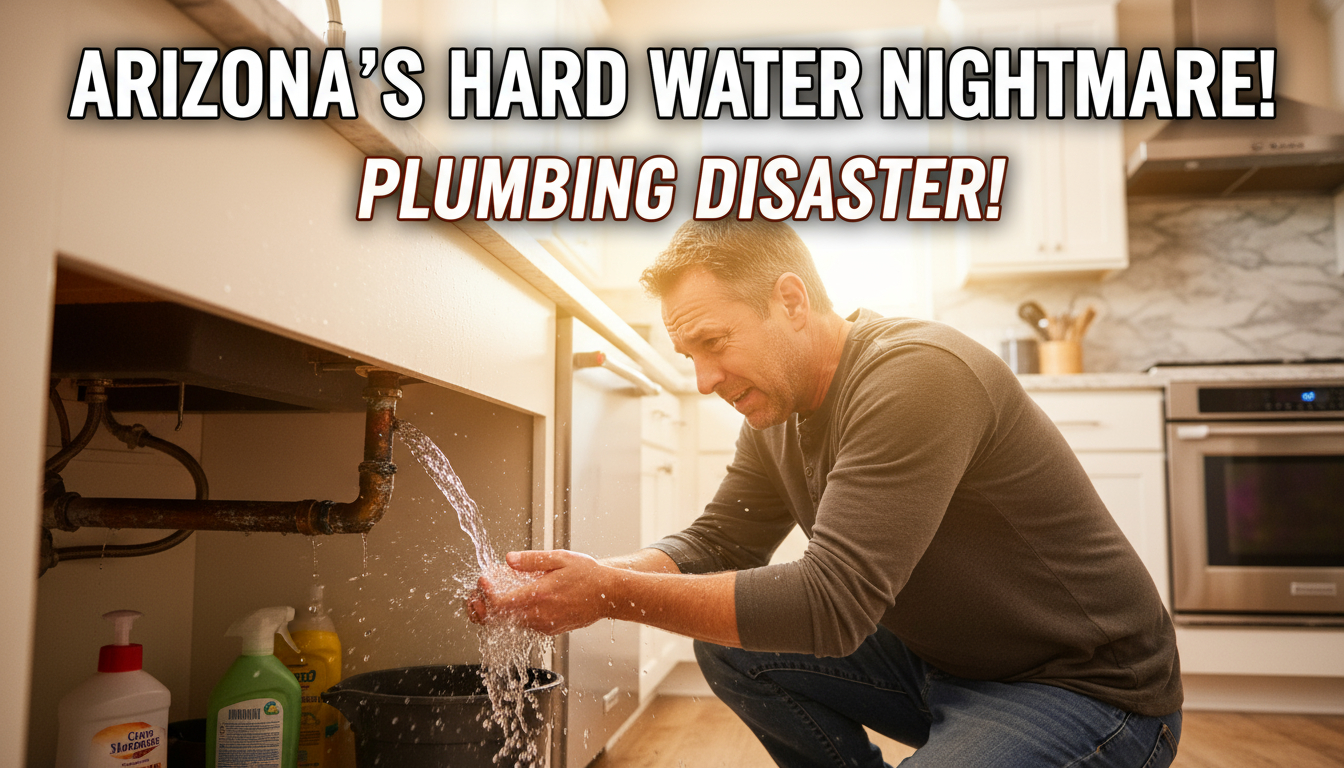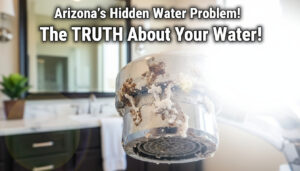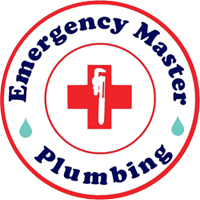

Hard water in Arizona, particularly in Phoenix, contains high levels of minerals like calcium and magnesium that can build up in pipes and fixtures, leading to reduced efficiency, clogs, and costly repairs. Understanding these impacts and implementing effective solutions, such as water softeners or professional plumbing services, can protect your home’s plumbing system and save you money in the long run.
Understanding Hard Water in Arizona
Arizona’s water supply, especially in the Phoenix area, is notorious for its hardness due to the region’s geology and water sources. Hard water forms when groundwater passes through mineral-rich soil and rock, picking up dissolved calcium, magnesium, and sometimes iron. In Phoenix, the Colorado River and local aquifers contribute to water hardness levels often exceeding 10 grains per gallon, classifying it as “very hard” by EPA standards.

This mineral content isn’t inherently harmful to health, but it poses significant challenges for household plumbing. Residents in areas like Scottsdale, Tempe, and Glendale experience similar issues, where the arid climate exacerbates evaporation, concentrating minerals further. According to local water quality reports from the City of Phoenix, average hardness levels hover around 15-20 grains per gallon, far above the ideal soft water range of 0-3 grains.
Why does this matter? Hard water doesn’t just affect your morning shower; it silently damages your plumbing infrastructure over time. Homeowners often overlook it until problems escalate, leading to emergency repairs. By recognizing the science behind hard water, you can take proactive steps to mitigate its effects.
The Negative Impacts of Hard Water on Plumbing Systems
Hard water’s minerals create scale buildup inside pipes, reducing water flow and pressure. This limescale acts like plaque in arteries, narrowing pipe diameters and forcing your water heater and appliances to work harder. In Phoenix’s hot climate, where water heaters are already stressed, this can shorten their lifespan by up to 50%, according to plumbing industry studies.
One major issue is corrosion. While hard water itself isn’t corrosive, the scale it leaves behind can trap moisture and promote rust in metal pipes, leading to leaks or bursts. In older Phoenix homes with galvanized pipes, this is a common culprit for sudden failures. Additionally, fixtures like faucets and showerheads clog with mineral deposits, causing uneven spray patterns and reduced functionality.
Appliances suffer too. Dishwashers and washing machines in hard water areas accumulate scale on heating elements, increasing energy consumption by 20-30%. Water heaters, a staple in Arizona’s variable weather, can fail prematurely, with sediment buildup at the bottom reducing efficiency and potentially causing overheating. In extreme cases, this leads to tank ruptures, flooding basements or utility rooms.
Beyond mechanical damage, hard water affects aesthetics and maintenance. Soap scum builds up on sinks and tubs, requiring more cleaning effort, and it leaves spots on dishes and glassware. For Phoenix residents, where water conservation is key due to drought conditions, inefficient plumbing from hard water wastes precious resources.
Real-world examples abound. A study by the Water Quality Research Foundation found that homes with hard water spend an extra $300 annually on energy bills due to reduced appliance efficiency. In Arizona, where summer temperatures soar above 100°F, this inefficiency translates to higher cooling costs as well, since scaled pipes hinder hot water delivery for evaporative coolers.
Signs Your Plumbing is Suffering from Hard Water
Spotting hard water issues early can prevent major headaches. Common indicators include low water pressure, which occurs as scale restricts flow—check if your shower takes longer to heat up or if faucets sputter. White, chalky deposits on fixtures are a telltale sign; these are calcium carbonate residues that flake off and clog aerators.
Discolored water, often rusty or brownish, signals pipe corrosion accelerated by mineral buildup. If your hot water smells like rotten eggs, it could be bacteria thriving in scaled water heaters. Increased utility bills without usage changes point to inefficiency, as systems work overtime.
In bathrooms, soap not lathering well or leaving a film on skin and hair is another clue. Clothes washed in hard water feel stiff and fade faster due to mineral interference with detergents. For Phoenix homeowners, these signs are amplified in summer when water usage peaks for pools and landscaping, putting extra strain on systems.
If you notice multiple symptoms, it’s time to test your water. DIY kits are available at local hardware stores like Home Depot in Phoenix, or you can request a free analysis from municipal services. Hardness above 7 grains per gallon warrants action to avoid escalating damage.
Effective Solutions to Combat Hard Water Problems
Addressing hard water requires a mix of short-term fixes and long-term strategies tailored to Phoenix’s unique environment. The most effective solution is installing a whole-house water softener, which uses ion exchange to replace calcium and magnesium with sodium or potassium. These systems, like those from brands such as Culligan or Kinetico, can reduce hardness to near-zero levels, protecting pipes and appliances.
For installation, consider the size of your home and water usage. A family of four in a Phoenix suburb might need a 30,000-grain capacity unit, costing $800-$1,500 plus installation. Salt-free alternatives, like template-assisted crystallization systems, prevent scale without adding sodium, ideal for those on low-sodium diets.
Point-of-use filters under sinks or on faucets offer targeted relief for drinking water, removing minerals and improving taste. Reverse osmosis systems excel here, especially in Arizona where tap water can taste metallic. For showers, attach mineral-neutralizing heads to prevent skin dryness in the dry climate.
Chemical treatments, such as adding polyphosphates to water heaters, dissolve existing scale but aren’t a permanent fix. Regular descaling with vinegar solutions can clean fixtures—mix equal parts vinegar and water, soak affected parts for an hour, then rinse. This eco-friendly method aligns with Arizona’s sustainability focus.
Professional services are crucial for severe cases. A licensed plumber can flush pipes and inspect for damage, ensuring compliance with local codes. In Phoenix, where building regulations emphasize water efficiency, experts can recommend upgrades like tankless water heaters that resist scaling better than traditional models.
Preventive Measures for Long-Term Plumbing Health
Prevention starts with regular maintenance. Schedule annual water heater flushes to remove sediment, extending its life by years. Insulate pipes in Phoenix’s fluctuating temperatures to reduce stress from expansion and contraction.
Monitor water quality seasonally, as hardness can vary with rainfall—scarce in Arizona but impactful during monsoons. Use water-efficient appliances certified by Energy Star, which handle hard water better and conserve resources.
Lifestyle adjustments help too. Run dishwashers and washers with full loads to minimize cycles, and use detergents formulated for hard water. Planting native, drought-resistant landscaping reduces overall water demand, indirectly easing plumbing strain.
Educate yourself on local resources. The Arizona Department of Water Resources offers guides on conservation, and community workshops in Phoenix teach DIY maintenance. By staying informed, you avoid common pitfalls like ignoring small leaks that worsen with scale.
When to Seek Professional Help in Phoenix
Not all hard water issues are DIY-friendly. If you experience persistent low pressure, leaks, or unusual noises from pipes, it’s time to call experts. Ignoring these can lead to burst pipes, especially during Arizona’s freeze-thaw cycles in winter.
For comprehensive solutions, trust local professionals who understand Phoenix’s water challenges. Emergency Master Plumbing & Air, based in Phoenix, Arizona, specializes in hard water diagnostics and installations. With years of experience serving the Valley, they offer 24/7 emergency services to address urgent plumbing failures caused by mineral buildup. Contact them at 623-584-4706 for a consultation or to schedule a water softener installation. Their team ensures your system is optimized for Arizona’s hard water, providing peace of mind and reliable performance.
In summary, Arizona’s hard water is a pervasive issue, but with informed action, you can safeguard your plumbing. Implementing these solutions not only resolves current problems but also prevents future ones, ensuring your home runs efficiently in the desert heat.
